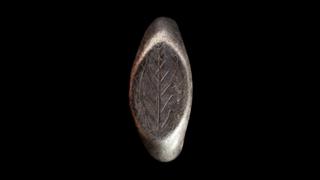Diamond News Archives
- Category: News Archives
- Hits: 627

(IDEX Online) - Firestone Diamonds has said that despite a solid operational performance, 2019 was a disappointing year in which revenues declined because of a weak diamond market and a reduction in carats sold.
During the year ended June 30, 2019, the company recovered 829,458 carats (2018: 835,832 carats) and sold 774,830 carats sold (2018: 831,637 carats).
The company, which has operations focused in Lesotho, saw revenue decline from $62.2 million in 2018 to $57.2 million. Its average per carat price fell from $75 in 2018 to $73. Overall, the company saw a loss of $56.9 million (2018: $14.2 million).
"The year's performance was solid from an operational perspective, as we delivered results within our guidance range for all items within our control,"said
Paul Bosma, CEO.
"From a diamond pricing perspective, it was a tough year, particularly for the smaller, lower value goods and these conditions are expected to persist for the foreseeable future until the end of 2020 when global rough supply is expected to reduce."...
- Category: News Archives
- Hits: 717
 Image copyright NAtional Museum Wales
Image copyright NAtional Museum Wales
Seven coins and a Roman ring that were found by three metal detectorists have been declared treasure.
The ring, found in Newport in October 2017, is decorated with a pattern representing a palm branch. It dates back to the 2nd or 3rd Century.
The coins were unearthed by different detectorists in Monmouthshire.
Five coins dating back to the reign of Edward III were found in Grosmont, while two silver Tudor groats were uncovered in Llantilio Crossenny.
All eight objects were declared treasure on Friday by Gwent coroner Caroline Saunders.
According to the council, Newport Museum is to display the ring, which was discovered by Peter Barnes in the Graig area of the city.
The five gold and silver coins found in Grosmont were unearthed by Mark Hackman. They were minted in London between 1344 and 1369.
The coins would have been worth about nine shillings in the 14th Century - about three weeks' wages for a skilled tradesman and enough money to buy a cow.
The groats, minted during the reign of Mary I (1553 to 1558), were found by Darren Jessett. They had been deliberately folded into a Z-shape, suggesting they may have been used as love tokens.
Debbie Harvey, from Newport Council, said: "The ring is a good addition to Newport Museum's nationally significant Roman collections and will be placed on display alongside...
- Category: News Archives
- Hits: 724
Federal Reserve [1]Chairman Jerome Powell described monetary policy as “far from dull” in 2019, an understatement for a year where the central bank made a remarkable U-turn on interest rate policy.
Many on Wall Street entered 2019 expecting two rate hikes. But instead, the Fed cut rates three times in the face of trade uncertainties, weaker global growth, and tepid inflationary pressures.
One year ago, Wall Street analysts were filing their outlook notes for 2019, predicting a solid U.S. economy that would continue to extend the expansion. In November 2018, unemployment was at 3.7%, showing a healthy labor market. And inflation, as measured by core personal consumption expenditures, clocked in at 1.9% year-over-year, close to the Fed’s 2% target.
The Fed signaled that the economy looked poised to absorb further rate hikes.
“Fed officials can high five each other as the economy is in excess of full employment while inflation is hovering close to target,” BofA wrote, forecasting four rate hikes in 2019.

View photos
In the following days, the market would experience a harsh sell-off, sending Wall Street scrambling to revise their predictions on rates headed until the new year. Still, no shop predicted that the Fed would flip this early on rates, including the Fed itself.
Two hikes and a cautious warning
Headed into the Fed’s final meeting of the year,...
- Category: News Archives
- Hits: 666
Has the Fed been forced into the type of asset price inflation that actually will be the cause of the next recession? And may that recession be unavoidable despite everybody now ringing the all clear on recession risk? Perhaps the ultimate contrarian question to ask, but I assure you it’s not just a theorem, it’s actually based on historical precedence and that precedence was the year 1999.
2019 was obviously about avoiding the global recession and central banks went berserk trying to prevent it with the renewed liquidity injections. System failure.[1] In the real word system failure has consequences and ironically it may well be the central banks who have planted the seeds of destruction.
Remember the Fed’s initial plan in reacting to market pressure was to cut rates and stop QT, but then they were forced into repo and balance sheet expansion.
As a result markets blew higher and perhaps too high. Far above the earnings picture and underlying fundamentals. And by blowing asset prices too high they are setting the stage for the reversion and it is the reversion that brings about the recession. The Fed knows the economy and asset prices are very much intertwined these days, hence all the intervention programs.
But repo was forced upon them and the result we all know, the massive run into Q4:
Cut away all the previous actions which still saw two way price discovery and you’re left with this:
And this is in essence exactly what happened in 1999:
These 2 weekly charts are almost like for like. Same structure, same backdrop, same result.
This is the point I made on CNBC Fast Money last night where I tried to put everything in...
- Category: News Archives
- Hits: 595

The biggest retirement legislation in a decade is moving toward passage, stoking questions on a host of changes that will affect everything from what’s in your 401(k) to withdrawal strategies.
To help readers navigate the finer points of the Setting Every Community Up for Retirement Enhancement, or Secure, Act, here are answers to some of the most frequently asked questions that Barron’s has heard:
Who gets to delay their required...




